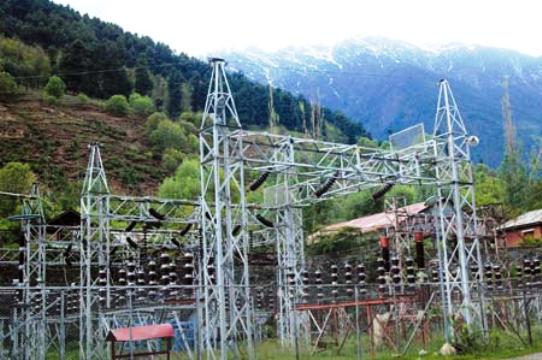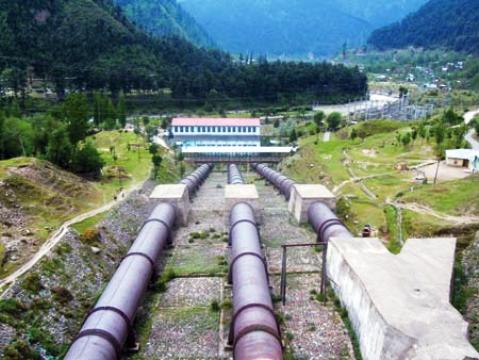Tejwant Singh Reen
Among the six basic principles of the governance underlying the National Common Minimum Programme of the Govt. of India, sustained “economic growth in a manner that generates employment” has a pride of place. It also describes the small scale industries as “the most employment – intensive segment”.
While examining the characteristic features of the economy of J&K State, one comes to the conclusion that the State is economically backward as compared to the other States of the Country. In view of this state of affairs, it is highly essential to diversify its economic structure by developing industries so that the socio-economic conditions of the state are improved. Industry will not only play a significant role in providing employment to a large number’ of educated youth, it will also give solution to the unemployment crisis through which the state is passing during these days, and also would contribute to raising per capita productivity.
We are aware that ours is a Land Locked State and is severely handicapped due to locational disadvantages. This results in increase in the cost of production as compared to our neighbouring States. In order to offset this additional cost, the State Govt. and Govt. of India has provided special package of incentives to the industrial sector so as to make it competitive. However the effect of these concessions cannot be presumed as direct addition in profits. However, we are convinced that J&K Small Scale Industry has a future. But while looking at the future, certain considerations will need to be kept in mind. The most important is the diversity in the small scale sector. We do realize that there are still some speed breakers on our super-highway to success. A good deal of reforms has already taken place and some are under way. Even today the single-man unit is subjected to a minimum of 37 inspections, 52 laws and 116 forms and registers. The govt. should try to frame a single legislation for the small scale sector which would reduce procedural hassles and do away with the Inspectorism. An environment should be created where the accent is on trust rather than mistrust; on facilitation rather than regulation; and, on togetherness rather than on division, where the words ‘you’ and ‘I’ are replaced by ‘ourselves’.
However, we are convinced that J&K Small Scale Industry has a future. But while looking at the future, certain considerations will need to be kept in mind. The most important is the diversity in the small scale sector. We do realize that there are still some speed breakers on our super-highway to success. A good deal of reforms has already taken place and some are under way. Even today the single-man unit is subjected to a minimum of 37 inspections, 52 laws and 116 forms and registers. The govt. should try to frame a single legislation for the small scale sector which would reduce procedural hassles and do away with the Inspectorism. An environment should be created where the accent is on trust rather than mistrust; on facilitation rather than regulation; and, on togetherness rather than on division, where the words ‘you’ and ‘I’ are replaced by ‘ourselves’.
As the economic significance of SMEs continues to grow, so do their environmental impacts. In India it is estimated that SMEs produce over 65% of industrial waste. In Canada and the United States, toxic emissions from facilities emitting 10 to 100 tonnes of pollution per year increased even though overall industrial pollution decreased by 4%.
SMEs are increasingly expected to take responsibility for their own environmental and social impacts, to understand different stakeholders’ interests and demands, and to demonstrate responsible behaviour through greater transparency. A number of factors can either hinder or drive adoption by smaller companies of strategies promoting corporate environmental and social responsibility. To overcome barriers to the adoption of such strategies, available tools need to be adaptable to small and medium companies’ requirements.
Although it is our Corporate Social Responsibility to protect the environment around us, but as more and more lndustrialization is also the need of the hour a balance has to be made by industries by implementing the pollution control devices. Further the Pollution Control Board which is responsible for monitoring of the SME’s should not play only the role of Regulator but more of Advisory role. The PCB should conduct seminars and advise the SME’s for installing the right kind of Anti-pollution devices at the right cost which is at present missing in our state.
The foregoing discussion leads to
several conclusions:-
1. The role of the government and its agencies is very important in promoting competitiveness of the industry in general and small scale industries in particular.
2. Innovative and tactical ways of protection needs to be devised for providing a period of adjustment to SSI’s and also lending them some breathing space.
3. The govt. should take some financial and tax measures’ to assist SSI’s such as
• Provision of subsidies for R&D costs,
• Guarantee of loans when extended by the Credit Guarantee Association,
• Provision of venture capital funds,
• Tax reduction for capital funds,
• Loans at low interest rates,
• Loans for modernization of equipment, and others.
4. Setting up “SAARC Knowledge Platform” including areas like e-networks, energy, water, healthcare, agriculture, food processing and capacity building – which will meet the unique needs of regional development and help frame a road map for its time bound implementation.
5. Govt. mindset has to be changed from red-tapism to red carpet welcome to entrepreneurs which will inspire investor confidence and in return boost industrial activities in J&K.
6. For competing internationally, the firms and the entrepreneurs should develop pro-active attitude and approach, and should upgrade technology used in their SSI’s and also focus on upgrading skills and competence of their personnel through appropriate training by developing competence for training need identification.
7. Entrepreneurs should analyze implications of all international agreements and treaties as well as other international developments in the country, industry and own enterprise.
8. Entrepreneurs should be vigilant on the changes in the factors that affect the product demand, raw material supplies and their prices and fluctuations in the same. Forecasting of these economic parameters for the firm and the industry on a regular basis would help in decisions regarding production planning, human resources management, marketing and strategic decisions like diversification etc.
9. The SSI’s should undertake ISO 9000 and other Quality management system certifications to achieve the level playing field. Further entrepreneurs should initiate efforts towards global success and ultimately aim at global leadership.
Thus, the J&K Small Scale Industries can successfully meet the challenge of globalization.
Author is president
Association of Industries Jammu













